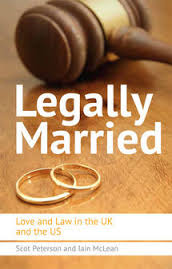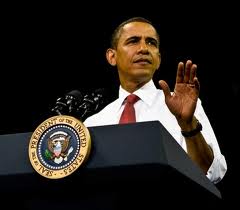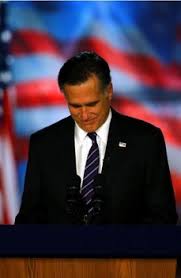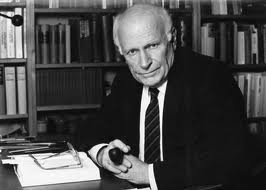
Same-sex marriage and the law: a Q&A with Oxford’s Iain McLean and Scot Peterson
I recently sat down with Dr Iain McLean and Dr Scot Peterson to discuss their new book, Legally Married: Love and Law in the UK and the US, which discusses the issues of same-sex marriage in both countries.
I found your book very interesting and though it addressed a very topical issue whilst providing a wealth of historical information and context. Could I start by asking what you think is driving the apparently accelerating legalisation of same-sex marriage worldwide?
Iain McLean: Which is the chicken and which is the egg? In North America, Latin America, and west/central Europe, social attitudes are changing further and faster than on any other moral issue that surveys have ever tracked. And politicians are responding. So are courts. Although judges like to believe that they are above politics, they would think hard about handing down constitutional interpretations that put them wildly at variance with public opinion.
There is a possible ratchet effect too. The US Supreme Court’s decision in Windsor v. US, in June 2013, holding that denial of federal tax benefits to same-sex widow Edith Windsor, which she would have received if her spouse had been male, was unconstitutional, has speeded up the process of legalising same-sex marriage in New Jersey, and may do so in other US states as well.

Identifying the Barriers to Gun Control: lessons from Virginia
For outside observers, gun control seems to be an oxymoron in America. Even following the school shooting in Newtown, the Senate failed to pass an amendment mandating universal background checks on sales of firearms. President Obama reacted with visible anger. He had staked much of his post-election political capital on ‘gun sense’, only to have a watered-down bipartisan bill proposed by two pro-gun Senators muster just 54 votes in the Senate. Polling revealed that the bill had more than 80% support amongst Democrats, Republicans and independent Americans.
The formal American system is famously anti-majoritarian: it is a cluster of staggered, disjointed and (in the case of the Supreme Court) even mythical legitimacies, all of which exercise influence over federal legislation. But questions remain as to why America cannot pass stricter gun laws, when a majority of Americans support a number of increased restrictions.

The legality of military action in Syria: humanitarian intervention and the responsibility to protect
It now seems fairly clear that the US and the UK are set to take military action in Syria in the coming days in response to the recent chemical attacks there. The UK Prime Minister, UK Foreign Secretary and the UK Secretary of State for Defence have all asserted that any action taken in Syria will be lawful. But on what grounds will military action in Syria be lawful. As is well known, United Nations Charter prohibits the use of force in Art. 2(4), as does customary international law. The UN Charter provides 2 clear exceptions to the prohibition of the use of force: self defence and authorization by the UN Security Council. It is almost certain that there will be no Security Council authorization. In a previous post, I considered the possibility of a (collective) self defence justification for the use of force in response to a use of chemical weapons. The scenario contemplated then is very different from the situation that has emerged, and the language used, at least by the UK, does not hint at a use of force on the basis of national interest. However, President Obama in a CNN interview last week did seem to speak of self defence when he said “there is no doubt that when you start seeing chemical weapons used on a large scale … that starts getting to some core national interests that the United States has, both in terms of us making sure that weapons of mass destruction are not proliferating, as well as needing to protect our allies, our bases in the region.” A justification for force on this basis would sound like preemptive self defence in a way that is very close to the Bush doctrine. I find it hard to see the Obama administration articulating a legal doctrine of preemptive self defence claim in this scenario.

The historical roots of Obama’s foreign policy
A common Republican criticism of Barack Obama is that he has been a weak foreign policy president who has little regard for American ideals. Obama ‘has responded with weakness to some of the gravest threats to our national security this country has faced’, charged the 2012 Republican platform. Mitt Romney accused Obama of starting his presidency with ‘an apology tour’. Republican rising star Marco Rubio says Obama wants ‘to make America more like the rest of the world, instead of helping the world become more like America’.
Yet, an examination of the history of US foreign policy and the ideas which influenced it shows that far from being a radical departure from the American norm, Obama’s worldview fits with a historical tradition.
In fact, he sounds much like an early statesman.
Stefan Halper, professor of International Relations at Cambridge and a former adviser to several presidents, argues that US foreign relations have historically been influenced by what he terms ‘Big Ideas.’ Their starting point is the belief in American exceptionalism, the umbrella concept from which all other ideas flow – ranging from the early 19th century Monroe Doctrine to the Bush Doctrine and democracy promotion.

Presentation or policy? The Republican Party has a problem
The Republican Party believes that its loss in last year’s presidential election was primarily a failure of presentation rather than policy.
In particular, the GOP’s heavy losses amongst minority groups – African Americans, Asian Americans, Latinos – has prompted the party to try to broaden its appeal to take account of America’s changing demographics. Its poor performance with the Latino population has informed the Republican leadership’s decision to support a comprehensive immigration reform bill (co-sponsored by the Florida senator and widely tipped 2016 Republican presidential candidate Marco Rubio). Barack Obama’s capture of 71 percent of the Latino vote was widely attributed to harsh rhetoric against illegal immigrants during the Republican primaries, including Mitt Romney’s promise to make them self-deport. The Republican establishment believes, therefore, that immigration reform is the gateway issue to begin a conversation with Latinos and other minority groups. Be more welcoming to immigrant communities, the argument goes, and these groups will become natural followers of the GOP’s message of limited government. The conservative columnist Charles Krauthammer, for example, argues that Latinos are naturally socially conservative and favour smaller government.
However, the evidence suggests that the Republican Party’s fundamental problem is its political philosophy. The GOP’s strident anti-government message does not appeal to the constituencies which it needs to win presidential elections.

Unpacking ‘the 99 per cent’
Occupy has spotlighted the super-elite, but the ‘average Brit’ that is pitted against this class does not exist. For the struggle to empower all citizens to succeed in Britain, mapping actual wealth distribution is critical. [This is the second of three pieces exploring wealth distribution in Britain. It sits within our Democratic Wealth debate, in partnership with OurKingdom.]

Applying Reinhart Koselleck’s conception of historical time to ideology in America
Last week, I gave a talk at Oxford’s Rothermere American Institute about the German historian Reinhart Koselleck (left) and the relevance of his conception of ‘historical time’ to the study of ideologies in America. We are used to thinking about ideology as a pejorative term — a utopian blueprint for world order with all the consequences that totalitarianism brings. But this is a narrow view. Ideologies are, more broadly speaking, a particular type of political thinking that operates in-between political philosophy and what we can call ‘real politics’ — that is the practical doing (and thinking) that goes on in political life. By ‘in-between’ I mean distinct from philosophy and ‘real politics’, but not mutually exclusive to them. Ideologies are, to put it crudely, where ideas and political action meet; they are ideas with an active prescriptive component which aim for political influence. Ideologies are types of political thought that want to influence political conduct.

America’s Fiscal Cliff: The first of many?
The American president has signed the bill drafted by Democratic and Republican leaders, which allows the United States to avoid “fiscal cliff”. The solution adopted by the Congress does not, however, solve the problem, but only touches some of its elements (tax policies) and postpones dealing with the others (cuts in governmental spending) for a few weeks. So who won in this dramatic battle, fought late into the first night of the New Year? Choosing the winner depends on one’s point of view, but no matter the viewpoint we take, one thing seems to be certain – the national interest has lost.









